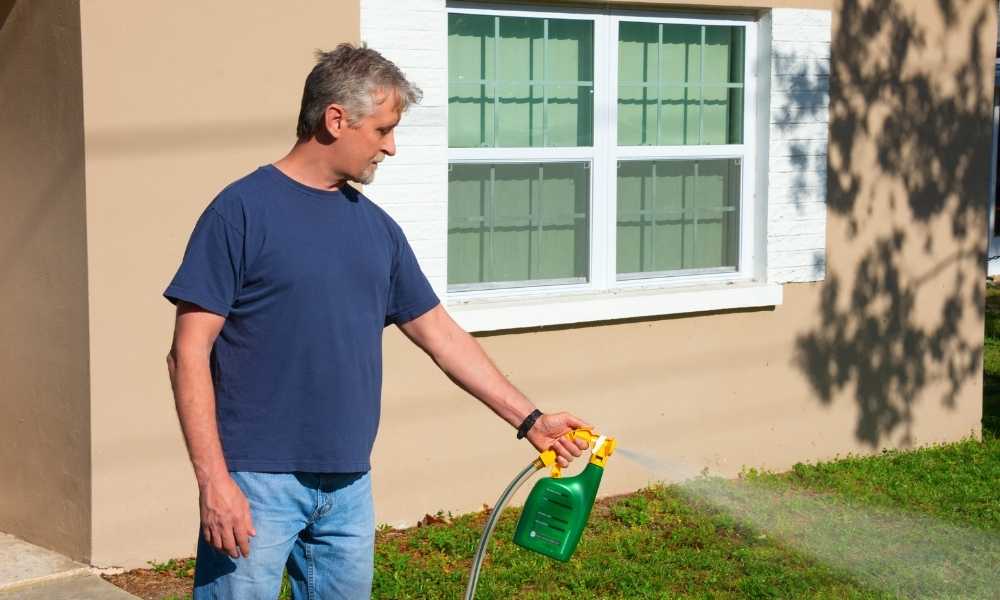Are you looking for a weed killer that is specifically designed for flower beds? Do you want something that is going to be effective and safe for the environment? If so, you may want to consider using glyphosate. Glyphosate is a broad-spectrum weed killer that is regularly used in agriculture, and it has been shown to be very effective when it comes to removing unwanted plants from flower beds.
What is the best weed killer for flower beds?
Weed killers are a necessary part of any garden, and when it comes to flower beds, there is no exception. However, with so many weed killers on the market, it can be hard to know which one is the best for your needs. One option is glyphosate. This weed killer kills weeds by inhibiting an enzyme that’s essential for plant growth. It’s non-selective, meaning it will kill any plants it comes into contact with, so you’ll need to be careful when using it.
How to use a weed killer?
Liquid weed killers are generally the most effective type of weed killer. They can be sprayed directly on the weeds, and they typically work quickly. Granular weed killers can also be effective, but they need to be applied evenly and they can take longer to work than liquid weed killers.
When to use a weed killer?
Ideally, weed killers should be used in the early spring before the weeds have had a chance to take hold. However, they can also be used later in the season if necessary. If you are using a chemical weed killer, always read the instructions carefully and follow them exactly. Be sure to avoid contact with desirable plants, and stay away from water sources.
Types of weed killers
There are many types of weed killers on the market, but not all of them are effective for flower beds. When choosing a weed killer, consider the kind of plants you want to protect and the type of weeds you want to kill. Some weed killers are designed to kill only certain types of plants, while others are more general-purpose. Be sure to read the label carefully before selecting a weed killer.
Some common types of weed killers include:
-herbicides: these kill weeds by damaging their leaves or roots.
-contact herbicides: these kill weeds immediately upon contact.
-systemic herbicides: these are absorbed by the plant’s leaves and move through the entire plant, killing it from the inside out.
How to use weed killer safely?
There are a few things to keep in mind when using weed killers, always read the label, and use the correct amount. Be sure to avoid drift by spraying only on weeds and not on flowers or other plants. And, never spray near water sources. It’s also important to wait until after rain showers to apply weed killer, as wet soil helps the herbicide soak in and be more effective.
What is a weed killer and what are the benefits of using one?
Weeds are pesky plants that can quickly overtake a garden or flower bed if left unchecked. Weeds can steal water and nutrients from desirable plants, and they can also be unsightly. A weed killer is a chemical or herbicide that is used to kill weeds. Some weed killers are specific to certain types of plants, while others are broad spectrum and will kill any plant that they come in contact with.
There are several benefits to using a weed killer. First, it can help to keep your garden or flower bed looking neat and tidy. Second, it can help to maximize the growth of desired plants by minimizing competition from weeds. Third, it can help to prevent the spread of weed seeds throughout your garden or flower bed. Finally, it can be less labor-intensive than manually removing weeds by hand.
How do weed killers work?
Weed killers work by killing the plants that they are sprayed on. The active ingredient in weed killers is usually glyphosate, which kills the plant by blocking enzymes that are necessary for it to grow. There are many different weed killers on the market, and some are better for certain types of plants than others.
Conclusion
In conclusion, there are many weed killers on the market, but the best one for flower beds is glyphosate. It is safe to use around flowers and kills weeds quickly. Always read the label before using any weed killer to make sure it is safe for your specific application.
